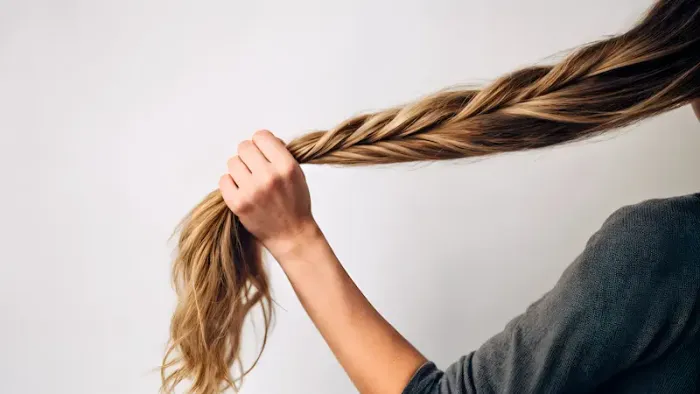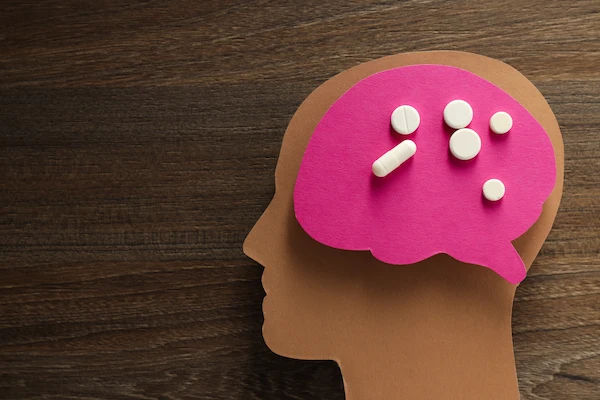Best Natural Home Remedies for Thick and Strong Hair
Discover thick hair remedies and hair growth tips you can safely try at home. Support stronger, fuller-looking hair with nutrition, scalp care, and smart habits.

Written by Dr. Mohammed Kamran
Reviewed by Dr. Dhankecha Mayank Dineshbhai MBBS
Last updated on 13th Jan, 2026

Introduction
If your hair looks thin, fragile, or breaks easily, you’re not alone. While genetics and health play big roles, everyday choices also affect how full and strong hair looks. The good news: simple, natural home care can make a real difference in your hair’s appearance and resilience. In this guide, you’ll find thick hair remedies and hair growth tips that are safe, practical, and based on trusted health advice. You’ll also learn when it’s smart to see a clinician to check for underlying issues.
How hair grows and why it can look thin?
• Hair naturally grows in cycles. It’s normal to shed 50–100 hairs a day.
• Thinning or shedding can be influenced by genetics, hormones, stress, illness, certain medications, and nutritional gaps.
• Conditions like iron deficiency, thyroid problems, and significant stress can trigger temporary shedding that usually improves once the trigger is addressed.
• You cannot increase the number of hair follicles you were born with, but you can help the hair you have stay stronger, reduce breakage, and look fuller.
Safety first: Before you try any remedy
• See a healthcare professional or dermatologist if you notice:
• Sudden or patchy hair loss, scalp pain, intense itching, redness, or scaling
• Hair loss along with fatigue, brittle nails, cold intolerance, or other symptoms
• Eyebrow or eyelash thinning
• Hair loss after pregnancy that is severe or persists beyond several months
• New medications or recent illnesses (including COVID-19) associated with shedding
Also:
• Talk to your clinician before taking supplements—especially if you’re pregnant, breastfeeding, have a medical condition, or take medications.
• Do a small patch test when trying new oils or products to avoid irritation.
• If you have dandruff or scalp conditions, manage them first—healthy scalp, healthier hair.
Natural thick hair remedies you can try at home
These home strategies won’t change your biology, but they support scalp health, reduce breakage, and help hair look thicker and stronger.
Scalp massage (simple and soothing)
• What it does: Helps distribute natural oils, loosens scalp buildup, and promotes relaxation. Many people find it makes hair care products work better by improving contact with the scalp.
• How to do it: With clean fingertips (not nails), apply gentle circular pressure across your scalp for 3–5 minutes daily or before shampooing. You can do this dry or with a few drops of a light oil if your scalp tolerates it.
Consult a Top General Physician
Pre-shampoo oiling to protect strands
• What it does: Light plant oils (such as coconut, olive, or argan) can coat and condition the hair shaft, reducing friction, frizz, and breakage—especially for dry, curly, or damaged hair.
• How to do it: Smooth a small amount through mid-lengths and ends 30–60 minutes before washing. Shampoo and condition as usual. Start with a pea-sized amount and adjust as needed to avoid heaviness.
Gentle cleansing and conditioning habits
• Shampoo based on your scalp’s oiliness (from daily to a few times a week). A clean scalp helps hair look fuller and stay healthy.
• Use conditioner after each shampoo to smooth the cuticle and reduce breakage. Focus conditioner on mid-lengths and ends.
• Detangle gently: Start at the ends with a wide-tooth comb or detangling brush and work upward.
• Rinse hair and scalp thoroughly to remove product residue that can weigh hair down.
Be kind to wet hair
• Blot, don’t rub: Gently squeeze water out with a towel. Avoid rough towel-drying, which can cause frizz and breakage.
• Limit high heat: Air-dry when possible. If you heat-style, use the lowest effective temperature and a heat protectant.
• Space out chemical services (bleach, relaxers, perms) and deep-condition regularly if you use them.
Protective styling choices
• Wear looser hairstyles. Repeated tight ponytails, buns, braids, or extensions can stress the hair and lead to thinning at the hairline (traction alopecia).
• Switch up your part to avoid repeated tension in one area.
• Use soft hair ties or scrunchies instead of rubber bands that snag.
Nutrition-based hair growth tips
Your hair is made mostly of protein and needs steady nourishment. A balanced eating pattern supports healthy growth and reduces shedding related to nutrition gaps.
Build a hair-healthy plate:
• Protein: Include a source at each meal (eggs, fish, poultry, tofu, beans, Greek yogurt).
• Iron: Lean meats, beans, lentils, spinach, and iron-fortified grains. Pair plant iron with vitamin C (citrus, tomatoes, bell peppers) to boost absorption.
• Zinc: Nuts, seeds, whole grains, dairy, shellfish.
• Omega-3 fats: Salmon, sardines, mackerel, walnuts, chia/flax seeds.
• Vitamin D: Fatty fish, fortified dairy or plant milks, eggs; discuss supplementation if levels are low.
• B vitamins: Whole grains, leafy greens, legumes, animal products. Biotin deficiency is uncommon; most people get enough from food.
Smart supplement sense:
• Supplements are not magic “thick hair remedies.” They only help if you’re actually deficient. Excessive doses (for example, vitamin A) can cause hair loss.
• If you suspect iron deficiency, low vitamin D, thyroid problems, or other issues, get tested and follow your clinician’s guidance rather than self-supplementing.
• Biotin can interfere with some lab tests. Tell your clinician if you take it so labs can be interpreted correctly.
Scalp health: Tame dandruff and inflammation
• Flakes, itching, or scalp inflammation can irritate follicles and make hair look limp or sparse. Treating dandruff can improve comfort and the look of hair.
• Try medicated shampoos with zinc pyrithione, selenium sulfide, salicylic acid, coal tar, or ketoconazole, used as directed on the label.
• Let medicated shampoo sit on the scalp for a few minutes before rinsing.
• Alternate with your regular gentle shampoo. If symptoms persist, see a dermatologist.
Lifestyle habits that support thicker-looking hair
• Manage stress: Significant stress can push hairs into a shedding phase (telogen effluvium). Stress-reduction practices—such as walking, yoga, breathing exercises, or mindfulness—can help normalize the cycle over time.
• Sleep well: Aim for 7–9 hours nightly to support hormone balance and repair.
• Don’t smoke: Smoking impairs blood flow and overall skin and hair health.
• Sun and pool care: Wear a hat in strong sun; rinse hair after pool or ocean swimming to remove chlorine or salt, and condition afterward.
A realistic weekly home plan
Use this flexible routine to support stronger, fuller-looking hair:
Daily
• 3–5 minutes of gentle scalp massage
• Detangle carefully, starting from the ends
• Manage stress with a brief walk, stretch, or breathing practice
• 2–4 times per week (based on your scalp’s oiliness)
• Shampoo the scalp and condition mid-lengths/ends
• Rinse thoroughly; blot dry and minimize heat
Once weekly
• Pre-shampoo oiling on mid-lengths and ends for 30–60 minutes
• Clarify buildup if needed with a gentle clarifying shampoo, followed by conditioner
As needed
• Use medicated dandruff shampoo per label if you have flakes or itching
• Trim every 8–12 weeks to remove split ends and reduce breakage
Consult a Top General Physician
When home care isn’t enough?
If hair keeps thinning despite good habits, or you have scalp symptoms, talk with a dermatologist or your primary care clinician. They can:
• Check for treatable causes such as iron deficiency, thyroid problems, or other medical issues
• Confirm the type of hair loss (e.g., androgenetic alopecia, telogen effluvium, traction alopecia)
• Discuss evidence-based treatments like topical minoxidil (over-the-counter), prescription options, or procedures when appropriate
• Help you build a plan that combines medical care with safe home practices
Consult a Top General Physician

Dr Syed Mateen Pasha
General Physician
2 Years • MBBS
Bengaluru
PRESTIGE SHANTHINIKETAN - SOCIETY CLINIC, Bengaluru

Dr Aakash Andgi
General Physician/ Internal Medicine Specialist
9 Years • MBBS MD
Bengaluru
Apollo Clinic, JP nagar, Bengaluru

Dr. Ashita Kuruvilla
General Physician/ Internal Medicine Specialist
7 Years • MBBS
East Midnapore
VIVEKANANDA SEBA SADAN, East Midnapore

Dr. Anand Ravi
General Physician
2 Years • MBBS
Bengaluru
PRESTIGE SHANTHINIKETAN - SOCIETY CLINIC, Bengaluru

Dr. Vivek D
General Physician
4 Years • MBBS
Bengaluru
PRESTIGE SHANTHINIKETAN - SOCIETY CLINIC, Bengaluru
Consult a Top General Physician

Dr Syed Mateen Pasha
General Physician
2 Years • MBBS
Bengaluru
PRESTIGE SHANTHINIKETAN - SOCIETY CLINIC, Bengaluru

Dr Aakash Andgi
General Physician/ Internal Medicine Specialist
9 Years • MBBS MD
Bengaluru
Apollo Clinic, JP nagar, Bengaluru

Dr. Ashita Kuruvilla
General Physician/ Internal Medicine Specialist
7 Years • MBBS
East Midnapore
VIVEKANANDA SEBA SADAN, East Midnapore

Dr. Anand Ravi
General Physician
2 Years • MBBS
Bengaluru
PRESTIGE SHANTHINIKETAN - SOCIETY CLINIC, Bengaluru

Dr. Vivek D
General Physician
4 Years • MBBS
Bengaluru
PRESTIGE SHANTHINIKETAN - SOCIETY CLINIC, Bengaluru
More articles from General Medical Consultation
Frequently Asked Questions
1) Do these thick hair remedies actually grow new hair?
They can help protect existing hair from breakage, support a healthier scalp, and make hair look fuller. They won’t create new follicles or reverse genetic hair loss, but they can improve the look and strength of your hair and support normal growth cycles.
2) How long until I see results from home hair growth tips?
Expect gradual improvements over 8–12 weeks. Hair grows slowly (about 1 cm/0.4 inches per month on average), so consistency matters. If shedding is severe or persists, see a clinician.
3) What’s the best oil for hair?
Choose a light plant oil your hair tolerates—common options include coconut, olive, argan, or jojoba. Use a small amount on mid-lengths and ends before washing to reduce friction and breakage. Discontinue if you notice scalp irritation or heaviness.
4) Should I take biotin or other supplements for thicker hair?
If you eat a balanced diet, biotin deficiency is rare. Supplements generally help only if you have a documented deficiency. Taking large doses without medical advice isn’t recommended and can interfere with certain lab tests. It’s best to discuss supplements with your clinician.
5) How much shedding is normal?
Losing about 50–100 hairs per day is typical. You might notice more after washing or brushing because loose hairs come out at once. If you see sudden shedding, bald patches, or scalp symptoms, consult a healthcare professional.




